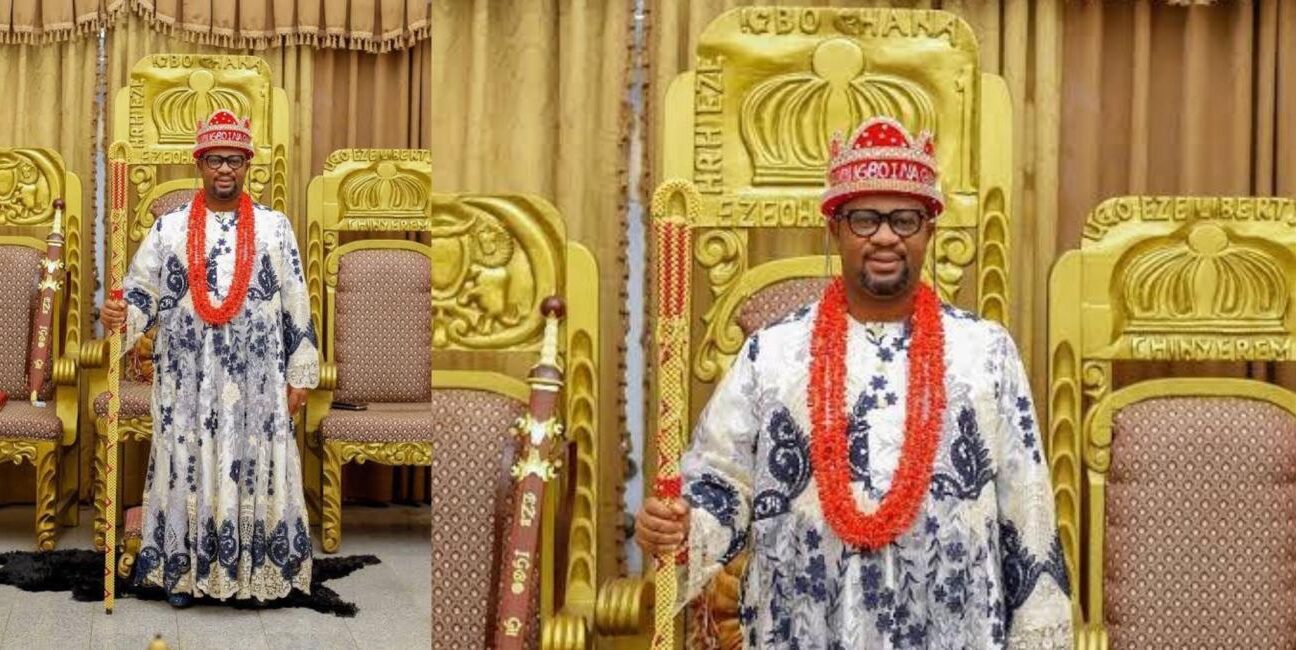Rumpus Erupts in Ghana over Installation of Eze Igbo

A wave of protests and heated public discourse has erupted across parts of Ghana following the controversial installation of Eze Chukwudi Ihenetu as “Eze Ndi Igbo Ghana” (King of Igbo People in Ghana), with many Ghanaians questioning the implications of foreign traditional leadership structures on the nation’s sovereignty and cultural integrity.
The controversy, largely driven by youth organisations in Accra and the Eastern Region, intensified after photographs of Eze Ihenetu’s opulent palace in Accra surfaced online.
The structure, adorned with regal insignia and elaborate architectural features, drew sharp criticism from local activists who view the display as a challenge to Ghana’s chieftaincy framework.
Protesters were seen holding placards bearing messages such as “No Foreign Thrones in Ghana” and “Honour Our Heritage,” while expressing fears that allowing foreign communities to crown kings within Ghanaian territory could erode the country’s traditional governance systems.
Many argue that such developments could set a precedent for the creation of parallel royal institutions by other immigrant communities.
Fueling the public outrage are persistent, though unverified, claims of land acquisition projects allegedly aimed at establishing an “Igbo town” or even an “Igbo kingdom” within Ghana. Of particular concern is a proposal, attributed to Eze Ihenetu, to develop a 50-acre settlement for Igbos in Old Ningo, which has sparked intense backlash from some Ghanaian citizens and cultural groups.
The situation gained further attention after a video went viral showing popular media personality, Captain Smart, kneeling in respect before the Igbo monarch during a public ceremony. The footage, widely circulated across social media, drew a mix of criticism and support, deepening the already polarised discourse around Eze Ihenetu’s role.
In response to the mounting tensions, Eze Chukwudi Ihenetu and several leaders of the Igbo community in Ghana have reiterated that the title of “Eze Ndi Igbo” is purely ceremonial and holds no political or territorial authority. Speaking in a recent interview, Eze Ihenetu clarified the intentions behind his kingship.
“The throne of the Diasporan Igbo in Ghana is meant to protect, defend, and project the Igbo people and Nigerians as a whole,” he said. “We have no political authority or territorial ambitions in Ghana. This is purely cultural.”
Despite these reassurances, many Ghanaians remain uneasy, with calls growing louder for the government and traditional councils to define the limits of foreign community leadership on Ghanaian soil. As the debate unfolds, observers note that the outcome may set a significant precedent in how multicultural coexistence is navigated in an increasingly globalised Africa.







